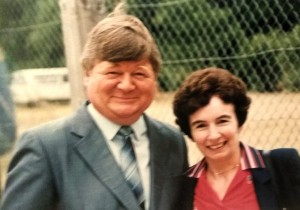 (original source here)
(original source here)
(She was bigger than the Beatles, found the Messiah after her music career peaked – article here)
She read the Bible and knew Jesus is the Jewish Messiah
I was raised in a warm, musical, traditional Jewish family in the heart of a large Jewish community in Hackney, in the East End of London. Our extended family, although not a very orthodox group, was nevertheless totally Jewish in identity and heritage.
I always believed in God
I suppose I believed in God from my earliest days. I took His existence for granted. The State school I attended taught the Bible and I loved the Bible stories very much. However, because my school had a Jewish Headmaster and a large Jewish contingency among the pupils, we Jewish kids had separate R.E. (religious education) classes and assemblies. As a consequence, I never heard of a New Testament or a Jesus until I was around six years of age. One day, a non-Jewish girl came up to me in the playground in quite some distress and blurted out, “You killed Jesus Christ!” I was devastated and confused by this accusation. I had never killed anyone in my life and who was this person with the strange name, Jesus Christ?
My first hit record
At 14, while still at school, I had my first hit record. That led me to go into show business, travelling the world, singing at many famous venues and having more hit songs, including ‘Walking Back to Happiness’. I was carried along by all the fame, meeting celebrities and royalty and didn’t give much thought to spiritual things until the late sixties. At that time, it seemed that everyone was searching for the ‘meaning of life’. I began to visit mediums, clairvoyants and other such folk, on occasion. I also started to read books and magazines about spiritism, Buddhism and all kinds of psychic phenomena. I developed a system of beliefs, over the years, which incorporated a little bit of this, a little bit of that – a smorgasbord of ‘isms’ which, these days, would be called ‘New Age’. To my own way of thinking, I was not remotely involved in anything evil or sinister. I associated everything I believed in with God.
Emptiness
For quite a number of years, I was comforted by what I had discovered. It seemed to fill a void in my life – until I turned 40. A few months after this milestone birthday, I woke up one morning and, to my own great surprise, I found I no longer believed in any of my ‘New Age’ ideas. It’s hard to explain, but my belief in the supernatural had vanished overnight. Try as I might, I could not believe in any of my ‘isms’ any more. This presented a dilemma for me as I had always equated all my beliefs with God. Did this mean that there was no God? I found the whole thing very depressing. For the first time in my life, I had nothing to believe in. My Jazz and Pop career was going well. I was in a relationship with the man who is now my husband. I was successful, but inside I was empty. Looking back, I can see that this was God’s hand.
I met a Christian man
In those days, my musical director was a man called Bob Cranham. He was a Christian and more than once he had spoken of what his ‘Lord’ had done in his life. These were wonderful things, but I couldn’t consider them for myself because I am Jewish. This was the Gentile God blessing His people. In the midst of my turmoil, I called in at his house one day, to pick up some music. Now, neither Bob nor his wife knew anything of my inner struggle. Nobody did. Bob dropped a bombshell that day. He said, “I’m thinking of giving up the music business.” I asked him why. He said, “Because I believe God wants me to be a preacher.” I thought to myself, “Oh dear. He thinks he’s hearing from God.” Here was a professional, sane and sensible top-quality musician, composer, songwriter, producer – and he’s talking about giving up everything. Nothing I could say would sway him. He seemed so calm and sure and so willing to take this drastic step, if, as he believed, God wanted it. I found myself becoming more and more impressed by how real and sincere his faith must be if he could surrender all that for his ‘Lord’. I went home and told my boyfriend John how much I envied Bob. I had many opinions, but Bob had real convictions. I wanted what he had! I guess I was ‘provoked to jealousy.’
Starting to think about Jesus
I started to think about this Jesus constantly. I couldn’t get Him out of my mind. Finally, I lay awake one night and felt that I had nothing to lose. I whispered, “Jesus…?” I didn’t know if I was going to be struck by lightning. “Are you really there? Are you really the Messiah? If you are, I want to know. Please show me.” Nothing seemed to happen in my room that night, but in the weeks that followed, it seemed that everywhere I went, I was bumping into things and people connected with this Jesus. While all this was going on, my band and I came back from doing a concert in Germany. When we arrived at the airport and were saying our farewells until the next gig, Bob, my musical director, handed me a book. I was surprised to see that the cover was a picture of a Menorah (a seven-branched lampstand). The title of the book was ‘Betrayed’, written by Stan Telchin. The sub-title, in effect said, ‘How would you feel as a successful 50-year-old, Jewish businessman if your daughter one day told you she believed in Jesus!’ “How did Bob know I was searching?!” I thought to myself. Of course, he didn’t know. Nobody knew. Continue reading

